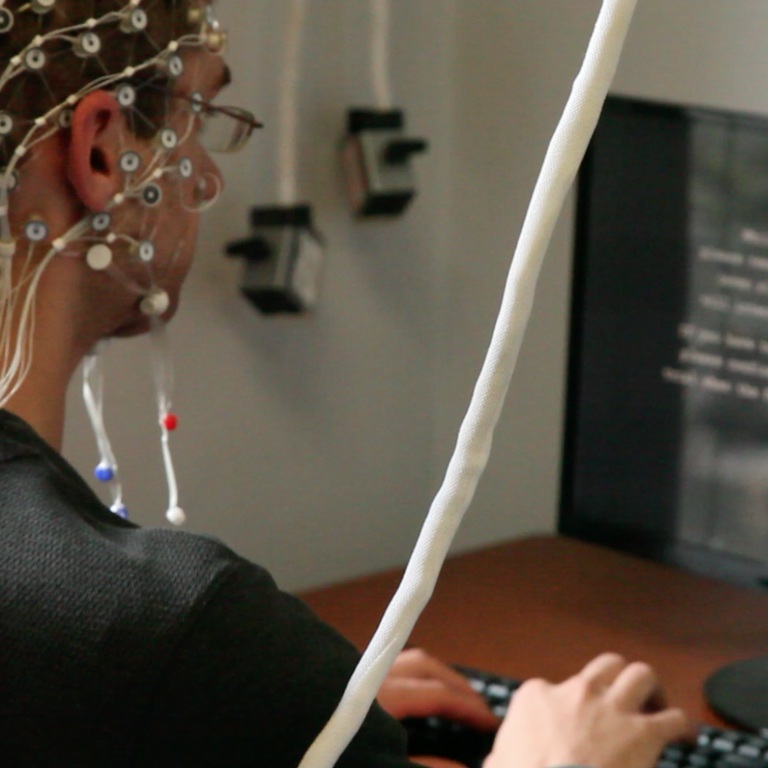All human beings have feelings. However, there are instances in which emotions become so overwhelming it becomes difficult to function. One therapeutic technique that can help with this is DBT, or Dialectical Behavior Therapy. DBT provides people with new skills to manage complex or painful emotions. One critical component of DBT is the concept of the wise mind. Wise mind refers to the logical part of one's consciousness. Marsha Linehan, the founder of DBT says the following:
The Wise Mind: How logical reasoning can help manage emotions
Wise mind is what we intuitively know to be the truth under the blanket of emotions. When you're emotionally charged in a situation, it's difficult to see what is real and true. You may be blinded by subjectivity. That's why it's crucial to look at the facts. Observe what's going on rather than how you feel about it. When you observe the facts, you can feel confident because there is tangible evidence. Emotions are abstract and fleeting, whereas the facts of a situation remain fixed. When you are in DBT treatment, you will explore different states of mind, and get to a place where you can balance emotion and logic.
In DBT, there are three states of mind - reasonable mind, emotion mind, and wise mind.
Reasonable Mind
Reasonable mind is ruled by logic. When you are in this state, you're thinking logically and rationally. One focuses on facts as well as reasoning. In the state of reasonable mind, you aren't tapping into emotions or moral value. A person who is in reasonable mind can critically evaluate a given situation and look at things with a pragmatic lens. It's an excellent time to focus on plans for the future, saving money, excelling in your career, or anything that involves critical thinking. When your emotions are heightened, tapping into reasonable mind is exceptionally challenging. But it can be done. There are techniques you can use in DBT that help you switch from the emotion mind to reasonable mind.
Emotion Mind
Emotion Mind is when a person experiences heightened feelings. People in this state feel impulsive and can engage in self-destructive actions. They might abuse substances, engage in compulsive spending, or overindulge in food. Emotion mind can be a dangerous place if you don't keep an eye on your behavior. You are charged with feelings and are likely to act impulsively, which can hurt people you love. A person's mood can affect their reasoning ability and can impact critical thinking. Since emotion mind can have a severe impact on a person's mental state, it's imperative to understand it. When you learn how to regulate your emotions, your mental health will improve as well as your quality of life.
Wise Mind
Wise mind is the state where reasonable mind and emotion mind are integrated. In wise mind, reasonable mind and emotion overlap. You can balance your logical perceptions of a situation with the Mind and Emotion Mind existing together. When you do that, you can view matters more accurately, and your emotions don't rule you. Wise mind allows you to feel a sense of peace. Most people struggle to get to wise mind. However, those who are in therapy, particularly DBT treatment, can develop self-awareness around their emotions and rationality.
How to develop practical wisdom using DBT
There are parallels between the wise mind and practical wisdom, which is a crucial component of Aristotle’s work. He believed that humans should develop practical decision-making skills, in order to succeed and flourish.
One exercise in DBT requires focusing on breathing techniques where you shift the focus to the center of your body. When you're emotional, you don't have to respond right away. Here are some ways to begin practicing:
- Observe your thoughts in a non-judgmental way. You don't have to push them away or change them. Watch them float by like clouds in the sky.
- Describe your experience and thoughts without judging them. For example, "I am angry, and I feel my stomach tightening.”
- Focus on the present. Bring yourself into this moment
- Feel your emotions. Experience your feelings, but don't try to control or change them.
How does wise mind work?
You may find in practicing breathwork and using wise mind that you have a sense of epiphany. You realize the inherent truth of a situation and know what's going on. You can observe your emotions from the outside. You can intellectualize your feelings rather than impulsively act, which can be helpful for making practical decisions. You can watch your feelings from the outside.
Tapping into logic
It can be hard to navigate the road to wise mind and practical decision-making. The synthesis of reasonable mind and emotion mind is possible, but it takes practice to get there. Getting to the rational or logical part of emotions is challenging. When you're in an emotional mindset, you can distort the facts. When you are using practical decision-making to shape your decisions, you can balance emotional concerns with logic. You can use intuition in the process. Some people look inward, follow their gut feeling, and realize what makes sense about the situation.
What is dialectical thinking?
Dialectical thinking helps you uncover the truth by exposing what is untrue or false. Opposites can hold. It's essential to understand that two opposites can exist. You can love someone, but recognize that their choices are hurting you. These two concepts can live in the same reality. Sometimes it's difficult to process the idea of dialectical thinking, because we tend to think in black-and-white, love or hate, closed or open, or angry or happy. DBT helps us to understand that two diverse concepts can co-exist.
Consider the facts
Think about what is objectively true. What do we know about a given situation? Examine if there is confirmation bias. Confirmation bias refers to the tendency to understand new content as confirmation of one’s existing beliefs. A confirmation bias indicates that your emotions are blocking what is true. You interpret a situation where you benefit you or your beliefs. Here's a situation where wise mind and logic can help you. The concept of wise mind can help a person feel more confident. They can see outside of themselves and see things rationally.
Rational thinking and emotions can work together
Many of us judge our emotions when they don't need to be evaluated. Emotions aren't bad or good; they just are. It's essential in terms of wise mind to integrate your feelings into your life without trying to fix or alter them. You can still look at the facts and understand that wise mind is a tool that helps you look at matters without an emotional lens. You can feel your feelings, but you don't need to judge yourself for having them. Judging your thoughts leads to feelings of guilt and shame. People have all sorts of thoughts, and they didn't cause them to be there. You can't control what you think, but you can respond to those thoughts. The ideas will be there, but you don't have to feel guilty about having them.
Therapy and wise mind
You may be wondering how to get to the state of wise mind. One method of tapping into it is working with a mental health professional. Therapy is a beautiful place to figure out the benefits of wise mind. You can explore the concept of wise mind and practical wisdom, and learn to balance emotions and logical thinking. Sometimes people believe that you have to be one or the other - emotional or rational. One of the fundamental aspects of DBT is that it incorporates both ideas. If you are struggling with emotional regulation and having trouble incorporating logical thinking, you might consider trying dialectical behavior therapy. A licensed therapist is equipped to help you develop practical decision-making skills. Whether you work with a therapist online with a company like BetterHelp or see a provider in person, you can build your mental wellness. In DBT therapy, your counselor can support you in balancing logic and emotion towards better decision-making.
Image from the DBT Center of Orange County
About the author: Marie Miguel is a writer and research expert. Her work focuses on health-related topics. Currently, she is contributing to the expansion and growth of the mental health resource BetterHelp. With a dedication to addressing stigmas associated with mental health, she continues to target subjects related to wellbeing.
BetterHelp is the world’s largest e-counseling platform. They offer access to licensed, trained, experienced, and accredited psychologists (PhD / PsyD), marriage and family therapists (LMFT), clinical social workers (LCSW / LMSW), and board licensed professional counselors (LPC). Their goal is to make professional counseling accessible, affordable, and convenient - so anyone who struggles with life’s challenges can get help, anytime, anywhere. To find out more, visit BetterHelp.
Visit our social media pages to discuss this topic:
Twitter, LinkedIn, YouTube, or Facebook
Contact us to provide suggestions for future discussions on wisdom!



